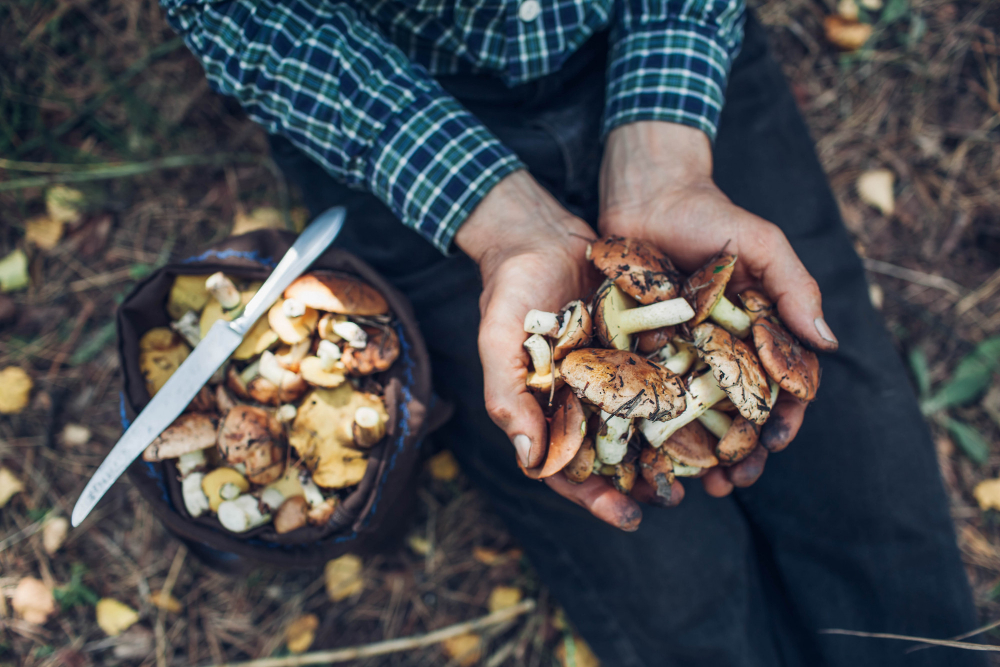

In addition to its potential immune system benefits, mushroom consumption has been found to be associated with a lower risk of cancer. A systematic review and meta-analysis of 17 cancer studies published from 1966 to 2020 revealed that individuals who consumed 18 grams of mushrooms daily had a 45% lower risk of cancer compared to those who did not eat mushrooms. The study, which analyzed data from over 19,500 cancer patients, found the strongest associations between mushroom consumption and breast cancer. Mushrooms are rich in vitamins, nutrients, and antioxidants, including ergothioneine, a potent antioxidant and cellular protector. However, further research is needed to better understand the mechanisms involved and the specific cancers that may be impacted [fc71a8d3].
Vitamin D, which is found in mushrooms, has also been the subject of research in relation to its potential protective effects against respiratory illnesses, including COVID-19. The ongoing CORONAVIT trial, led by Professor Adrian Martineau, is investigating the impact of Vitamin D on the risk and severity of COVID-19. Vitamin D acts as a hormone in the body and has receptors in nearly every cell, including immune cells. It stimulates an antibacterial response from the innate immune system and has anti-inflammatory effects. However, it is important to note that two out of five UK adults have insufficient levels of Vitamin D during winter and spring, and the use of sunscreen can block its synthesis. Therefore, it is important to ensure adequate intake of Vitamin D through other sources [92dfb0fe].
Good dietary sources of Vitamin D include oily fish, red meat, liver, egg yolks, and mushrooms. Additionally, mushrooms can produce vitamin D when exposed to sunlight or UV rays. However, mushrooms from indoor farms have low vitamin D content unless treated. Exposing mushrooms to sunlight or UV light increases their vitamin D content. Slicing the mushrooms or exposing the gills side to sunlight results in more vitamin D production. Mushrooms can also be exposed to artificial UV light to boost their vitamin D content [86a3d2cb].
The current recommendation is for at-risk groups and individuals in care homes to take 400 IU or 10 mcg of Vitamin D3 year-round, while the general population is advised to take the same amount in autumn and winter. However, some specialists argue that the recommended dosage should be increased to 800-1,000 IU. It is safe to take up to 4,000 IU or 100 mcg of Vitamin D per day through supplements, according to NICE guidance [92dfb0fe].
The discussion on Vitamin D and its potential benefits for the immune system and the findings on mushroom consumption and cancer risk add to the ongoing efforts to strengthen public health and address the challenges posed by public health crises [92dfb0fe] [fc71a8d3].
Cooking mushrooms retains a significant amount of vitamin D, so it is important to include them in the diet. Mushrooms are a good non-animal source of vitamin D, containing primarily vitamin D2 and smaller quantities of vitamin D3. The vitamin D2 content in mushrooms varies with the type of mushroom. Therefore, exposing mushrooms to sunlight before cooking can enhance their vitamin D content [86a3d2cb].